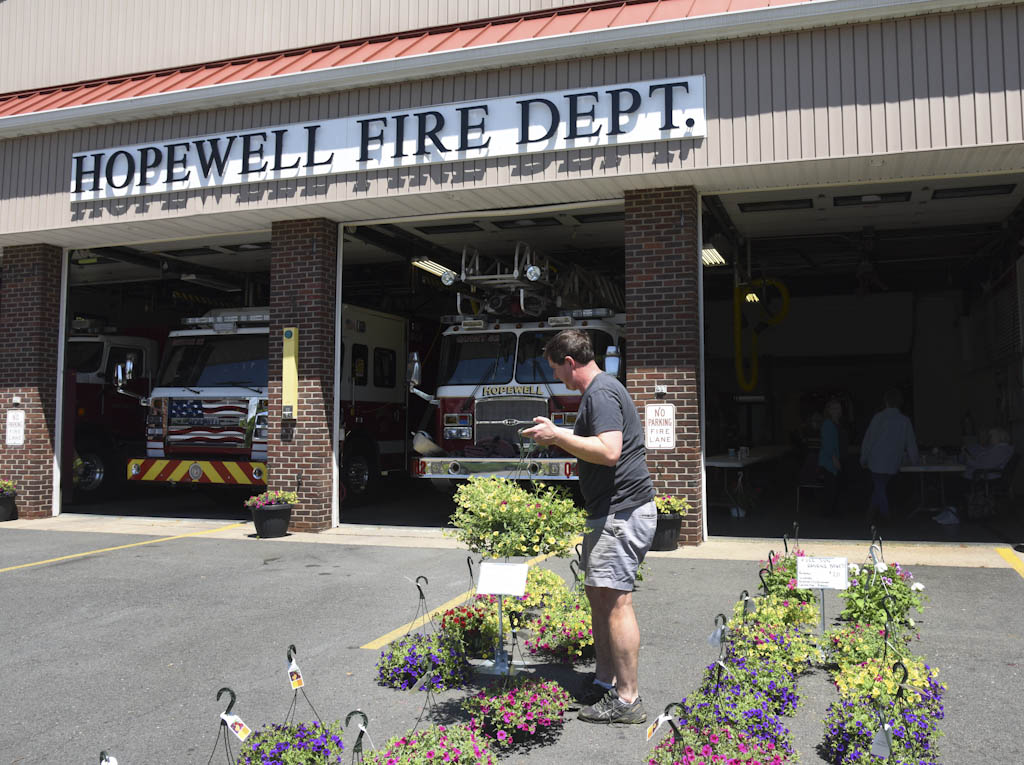The Hopewell Township Committee voted unanimously for an amendment to the land use ordinance that applies to the Bristol-Meyers Squibb property.
The property covers 430 acres, 200 acres of which are dedicated to preserved farmland and open space on Pennington-Rocky Hill Road.
Following a contentious public hearing on the ordinance on June 24, committee members voted 5-0 to adopt the amended ordinance.
Hopewell Township Mayor Kristin McLaughlin, Deputy Mayor Michael Ruger, Committeeman Kevin Kuchinski, Committeewoman Julie Blake and Committeeman John Hart voted “yes” on a motion to adopt the measure.
“It was never intended to be anything more than items being manufactured on site and being sold off site. The value in that property is heavily in these specialized buildings that are used to create biologic medicine,” McLaughlin said. “This would be for a market base which is one the changes we made. It was vitally important to have that change.”
The ordinance came about due to Bristol-Meyers Squibb officials wanting to sell the property after closing the Hopewell campus site. They notified township officials and residents of that decision in 2016.
Prior to the hearing on the amended ordinance, the Hopewell Township Code was shared on how certain materials are allowed to be manufactured on site as long as they were used there.
For example, according to the code, it allowed material devoted to research, experimentation, design, education, and development in medicine, pharmacology, chemistry, physics and engineering.
The original proposed amendment by the Hopewell Township Committee for the ordinance was for production and assembly in the fields of medicine, pharmacology, chemistry, physics, engineering, biologics and similar fields, including, but not limited to, the production of medicines, including nutritional products; medical products and medical devices, and their component parts, according to officials.
The amendment was later changed after committee members heard concerns from the public.
The amendment that was voted on by the committee narrowed the fields of production to medicine, pharmacology and biologics.
The ordinance will also allow for the property to be subdivided with multiple owners.
“Almost as soon as Bristol-Myers notified us that they would be vacating the site, it became very clear that the market was not there for a very large company to come in a purchase the site as a single user,” McLaughlin said. “Times have changed. No one is doing that anymore. They advised us if we wanted to keep the site economically useful to the taxpayers, we needed to allow for multiple owners on the site. That was one change that me made.”
According to the township, Bristol-Myers Squibb currently represents about 6% of Hopewell Township’s tax base, which accounts for $6 million annually in tax revenue.
“Keeping this tax base for our taxpayers is something that keeps you up at night as an elected official,” McLaughlin said. “We do not want to burden our taxpayers because we did not look into the future. We try to be proactive.”
One of the people concerned with the amended ordinance is Watershed Institute Executive Director Jim Waltman.
“Our concern is that we do not know what is coming next after Bristol-Myers Squibb. Our disappointment with the Township Committee is that they went forward with a proposal to change the zoning in hopes of enticing a new owner to come out of the woodworks, instead of waiting for a new owner and finding out what they want to do with the site,” he said.
For Waltman and Watershed Institute officials, there is concern that it would be difficult for the institute and others to keep track of and stay on top of what is happening on the site if it is subdivided, which is permitted with the amended ordinance.
Waltman said he is also concerned about the environmental impact on the farms and neighborhoods around the property. The Watershed Institute’s 1,000-acre nature reserve on Titus Mill Road is across from the Squibb property and would be a close neighbor to any potential new owners.
“You had a whole lot of people who found out about this at the last minute. A more thoughtful approach would have been for the committee to plan another hearing to give people the opportunity to process it,” he said.
Waltman also cited the issue of possible increased truck traffic to and away from the site, as well as trucks carrying raw materials for manufacturing with this amended ordinance.
“We put additional restrictions on traffic to address concerns that this amendment might increase truck traffic,” McLaughlin said. “As for folks that are concerned with the process, I sympathize with them, but the process is the government process in changing the ordinance. We notice this when we put it on the agenda. We heard from everyone that wanted to speak during the public meeting and made changes. We were able to take out some of the language of the ordinance that was concerning and tighten it up.”
She explained that she was assured as well that the General Development Plan still holds and the environmental protections that were in place will continue.

